Telehealth Reverse Diabetes Resolve This Is The Year!

This Year! Say it out loud, “I Resolve to Reverse Diabetes!” Write it Down! Tell Everybody! Show them you’re Serious!
Contact us and we’ll help you make it happen!
January, 2019

Janus, the Roman god of doorways, has two faces. He looks back at December when we celebrated and ahead to February when we’ll fix everything up again.
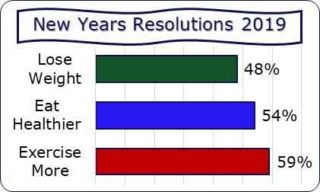 Every January, about half the people all over the country, make New Year’s Resolutions. So far reports from New York tell us most popular for 2019 is “Exercise More” followed closely by “Eat Healthier” and “Lose Weight.” Lots of people are resolving to do all three.
Every January, about half the people all over the country, make New Year’s Resolutions. So far reports from New York tell us most popular for 2019 is “Exercise More” followed closely by “Eat Healthier” and “Lose Weight.” Lots of people are resolving to do all three.
Half the people polled said they didn’t make any resolutions last year. Another third said they’re still keeping some or all of their resolutions. The others said they just didn’t succeed in keeping any of them.
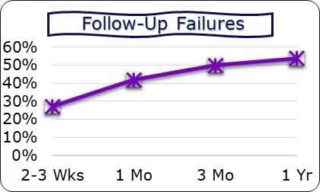 The record for success sticking to Resolutions is not good. By the end of 2 years, 20% report they have faithfully kept their resolutions. For those who fail, it happens fairly quickly. Follow-up polls by YouGov in 2018 showed that 50% of those who failed, did so within 3 months.
The record for success sticking to Resolutions is not good. By the end of 2 years, 20% report they have faithfully kept their resolutions. For those who fail, it happens fairly quickly. Follow-up polls by YouGov in 2018 showed that 50% of those who failed, did so within 3 months.
Intentional Weight Loss
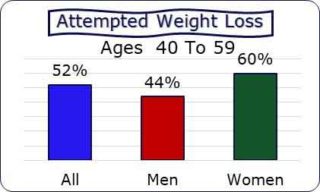 People do keep trying! Every year in this country, about half the adults 40 to 60 years of age try to lose weight. The Figure shows that 44% of men and 60% of women in that age group attempted to lose weight.
People do keep trying! Every year in this country, about half the adults 40 to 60 years of age try to lose weight. The Figure shows that 44% of men and 60% of women in that age group attempted to lose weight.
More than two-thirds of adults in this country carry unhealthy weight, more than about 2.5 lb per inch of standing height. More than one-third are obese, weighing more than 3.5 lb per inch. Apparently, men and women who are obese are the ones most likely to attempt losing weight.
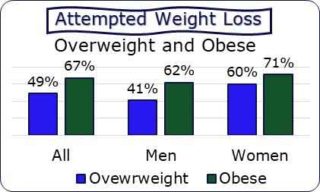 The Figure shows that 67% of all who are obese attempted to lose weight compared to 49% of those overweight. Within each category, more women than men tried to lose weight. In any year, 71% of obese women tried to lose weight compared to 62% of obese men.
The Figure shows that 67% of all who are obese attempted to lose weight compared to 49% of those overweight. Within each category, more women than men tried to lose weight. In any year, 71% of obese women tried to lose weight compared to 62% of obese men.
It Is Possible To Lose Weight
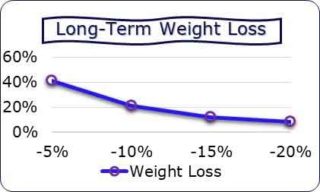 It really is possible to lose weight. The National Health and Nutrition Examination Survey in the U.S. reported results from 2500 men and women who tried to lose weight. Results showed 41% lost more than -5% of their weight and 21% lost more than -10%.
It really is possible to lose weight. The National Health and Nutrition Examination Survey in the U.S. reported results from 2500 men and women who tried to lose weight. Results showed 41% lost more than -5% of their weight and 21% lost more than -10%.
Those who were successful reported:
1. eating less fat
2. exercising more
3. joining commercial weight loss programs
They did not have any greater success using liquid diets, nonprescription diet pills or popular diets.
Unfortunately, many people who lost weight initially, gained back about 10 lb in body weight following their success in weight loss. Most of the weight was gained back in the first 6 months after their program ended.
How To Make Resolve A Reality
Almost any program will work for somebody. But there is no program that works for everybody. For each individual, we just have to create the program that works best.
So Let’s Get Started!
You’re the one who knows what will work for you. Tell me what you know for sure you can do and I will help you get started. Send an email to jakaherd@gmail.com.
My end is secured for Protected Health Information (PHI). I’ll send you instructions how we can connect using Google Hangouts. Then we’ll have security with end-to-end encryption for PHI.
Perspective
If we keep doing something we know we can do, we’ll get better at it. If we keep trying a little harder, we’ll get really good at it.
Anything new we try to do, eventually we’ll figure it out and it’ll become easy.
Remember, it took your whole life to get where you are. That’s what your brain expects and it makes you feel it’s going to be hard to change.

To get where you want to be, we’ll teach your brain some new tricks.
Who cares?
You care . . . . . and I care.
One Small Request:
If you enjoyed reading this article, kindly give it a share. Your share is extremely helpful to spread our message and help more like you.




